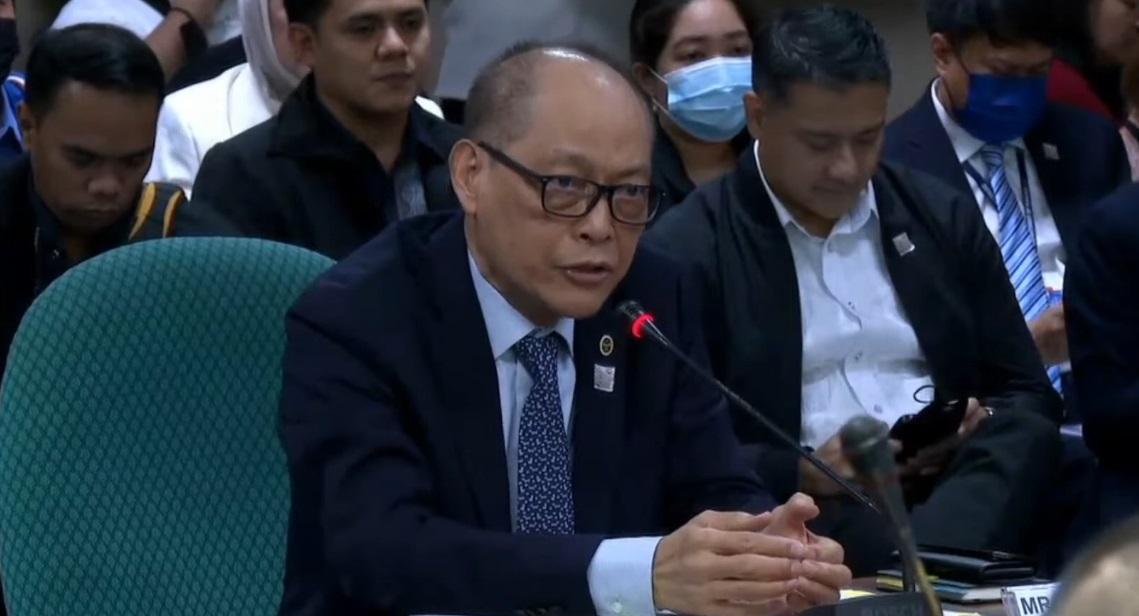Philippines won’t go into recession, says Diokno

The Philippines will not go into recession, the country's top economic manager said Wednesday.
Finance Secretary Benjamin Diokno made the statement when asked about the Department of Finance's plans to mitigate the looming global recession during a Commission on Appointments committee hearing on his ad interim appointment.
"I can assure you, your honor, that given the data that we have, under very extreme conditions, we will not have a recession because we have a very young population," Diokno said.
"For example, our unemployment rate is now down to five percent—that is the lowest since before the pandemic. So I can assure you, given our focus on agriculture, restored mining, power industry, and manufacturing are working well plus we have opened up the overseas workers, we have increased the quality of our overseas workers, I don't think we'll have a recession, your honor," he added.
CA Majority Leader and Camarines Sur Representative Luis Raymund Villafuerte, who raised the question during the hearing, said while the projected economic growth is "very good," the country still needs to consider the global economy.
Diokno, in response, explained that the Philippine economy is "less dependent" on external factors.
"Our economy is more or less a domestic-driven economy," he said.
The DOF chief likewise reiterated that the country's debt is still manageable.
"Our public debt is manageable, let’s put it that way. It should not be a cause for concern," Diokno told the CA panel.
The DOF chief explained anew that the debt-to-GDP ratio increased from 40 percent before the pandemic to 62 percent during the pandemic due to the vaccine procurement and improvement of health services, among others.
"That should not be a cause for concern—62 percent. That’s very manageable compared to other countries [whose] debt-to-GDP ratio is 200 percent," he added.
In a previous Senate hearing, Diokno said the Philippines' debt problems will not reach Sri Lanka's level.
Further, Diokno said that the government has a "very strong" economic strategy in the next six years.
This strategy includes higher revenue targets and stricter spending policies.
“So, [with] higher revenues [and] stricter on the expenditure side, I think we can manage our debts,” Diokno said.
As of end-September this year, the debt-to-GDP ratio—the amount of the government’s debt stock relative to the size of the economy—rose to 63.7% from 62.1% in the second quarter of 2022.
This is the highest debt-to-GDP ratio since 2005, when it hit 65.7%, well over the internationally recommended threshold of 60%.
The country’s debt, meanwhile, swelled to a new record high of P13.517 trillion as of the end of September 2022, as the government issued securities to raise funds to support the budget, coupled with the peso’s weakening against the US dollar.
Diokno earlier announced that the administration aims to bring down the debt-to-GDP ratio to 52.5% by 2028.
The debt-to-economy level is intended to decline continuously to 61.8% in 2022, 61.3% next year, 60.6% by 2024, and 59.3% by 2025. — BM, GMA Integrated News




